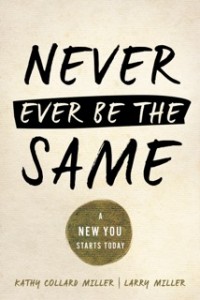Godly Sorrow is Better for Them and Us!
by Kathy Collard Miller and Larry Miller
Several years ago, a friend passed along confidential information about us and we were hurt. It initially felt “right” to wallow in our pain and we wanted to strike out in anger. But then we rehearsed how we could choose to have godly sorrow instead.
When someone sins against any of us, godly sorrow is the loving choice because then we grieve because we know they will suffer from their sinful choices. We grieve, wanting the best for them rather than lashing out in some ungodly way and justifying it. We begin to desire their repentance even if we are never justified, vindicated, and credited with loving them well. Godly sorrow most often includes giving grace and mercy to the person who doesn’t deserve it. This response is godly because it is not about us, it is about God being glorified through treating them with God’s kind of love, forgiveness, and understanding. We may still set boundaries but even that can be a result of godly sorrow.
Of course, Jesus is our perfect example of Godly Sorrow. Notice his heart in the interaction with the Pharisees and the man with a withered hand:
Again he
Jesus models for us godly sorrow by being “grieved” by the Pharisees’ “hardness of heart.” He longed for them to enjoy a true relationship with their Heavenly Father instead of the painful consequences of hard hearts. And he longed for them to enjoy the fruits of godly compassion for a hurting man. Jesus’ anger was not sinful because it was purely motivated by wanting the best for them.
All of us have a hard time reaching that level of purity in our desires, therefore what we might want to call “righteous indignation” or “righteous anger” is mixed with selfish desires. But we can grow closer to that level of righteous indignation through choosing godly sorrow.
When we have true godly sorrow, we are motivated by the same love that motivated Jesus: a desire for someone else to enjoy the fruits of righteousness and avoid the destructive effects of sinful choices. Jesus didn’t make it about himself—even though he was being rejected and he should, of all people, receive the respect he deserved. He never took ungodly behavior “personally.” Instead, he grieved for the pain it caused others.
In what way could you seek God’s strength to have godly sorrow toward someone today?
This article is excerpted from Never Ever Be the Same (Leafwood Publishers) which offers Christians hope that they can change their ungodly reactions through identifying their self-protective strategies and trusting God instead. The authors are Kathy Collard Miller and Larry Miller and includes biblical principles, insightful stories, and helpful instruction. It has individual and group discussion questions.
Kathy Collard Miller and Larry Miller are speakers and authors. They have been married 44 years and Larry is a retired police lieutenant. The Millers live in Southern California, and have two grown children and one grandson. Visit them at www.LarryAndKathy.com. Kathy blogs at www.KathyCollardMiller.com.
Never Ever Be the Same is available at your local Christian bookstore and in both print and digital versions at:
Amazon: http://amzn.to/1ITmLfy
CBD: http://bit.ly/1AuJZSX
Barnes and Noble: http://bit.ly/1BJz3lC



Thanks, Kathi, for posting a little “bite” of what readers will find in our book. I hope it will inspire them to have godly sorrow for those who wound them or who are hurting themselves with their poor choices. I value your ministry, Kathi, and appreciate your support!